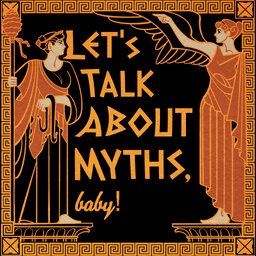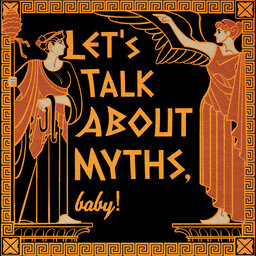Setting the House Ablaze, Not Using Fire (Euripides’ Orestes, Part 2)
Euripides' Orestes continues, Orestes pleads his case to Menelaus and Tyndareus, and we meet his beloved bestie, Pylades. Help keep LTAMB going by subscribing to Liv's Patreon for bonus content!
CW/TW: far too many Greek myths involve assault. Given it's fiction, and typically involves gods and/or monsters, I'm not as deferential as I would be were I referencing the real thing.
Sources: Euripides' Orestes, translations by Anne Carson (main reference and short quotes throughout); EP Coleridge (long quotes and intro quote); Euripides by Isabelle Torrance. Re: that misspoken line by Hegelochus, Wikipedia's description and the scholia itself.
Attributions and licensing information for music used in the podcast can be found here: mythsbaby.com/sources-attributions.
 Let's Talk About Myths, Baby! Greek & Roman Mythology Retold
Let's Talk About Myths, Baby! Greek & Roman Mythology Retold


